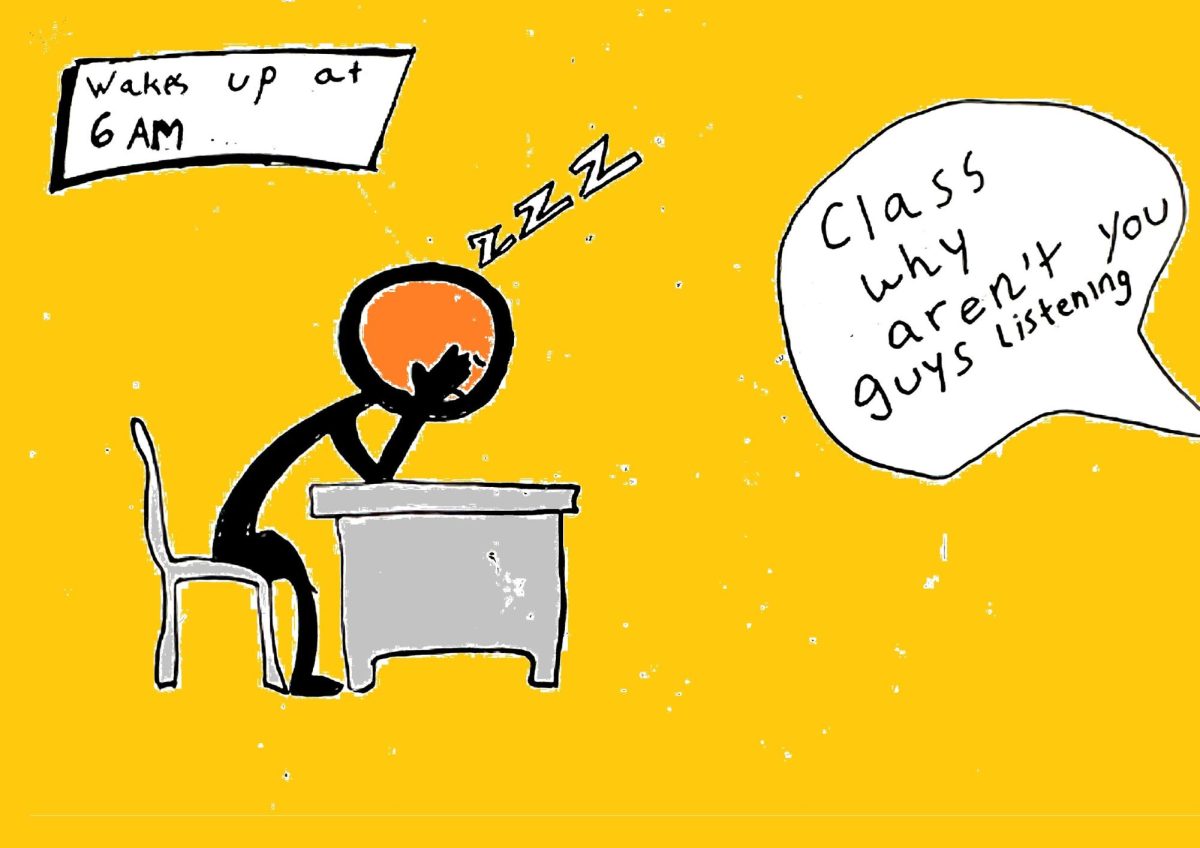When students who know about Step-Up talk about the club, they can be quick to judge, saying that it is boring or a waste of time. On the contrary, many students attending Step-Up say that it is very helpful and fun. In order to actually understand what Step-Up is truly all about, people need to look at it from the inside.
Frustration over the time commitment of the program hovers around the students, especially around freshmen. According to Jordan Becker, a freshman in the Step-Up program, these rumors started because some students wanted to hang out with friends and did not want to give up their time after school for academic purposes. This is truly understandable, being that after a day of school, a number of people would rather go and relax then stay at school for education.
Some rumors that freshman Jose Chavez heard from his friends were that Step-Up “is pointless” and that “it sucks”. He adds that he often hears how kids are messing around. Perhaps some are, but people should not say this until they have actually seen what the club is like. Students can do that by filling out a SUN form and joining Step-Up at any time. Once a student joins, they can get support with their homework and have a place to relax after school.
Mentor Chip Holton says Step-Up not only tutors but also provides a place to work after school and helps develop a student’s character. Holton and other mentors helped students improve their attendance by making their learning experience fun during the club. The students attending Step-Up have a school attendance percentage of 94 while non-Step-Up students only have a school attendance of 91 percent.
The mentors’ focus is having the students participate 100 percent in Step-Up. They attempt at their goal by creating activities that are not only educational but also entertaining. Holton added that he notices students being dedicated and having fun in Step-Up. An example is when they play games before working on assignments. One of the games they played is a jeopardy type game where they divided into two groups and each one took turns choosing academic subjects such as math and science from the whiteboard. Each question has a certain amount of points depending on how hard they are. Students worked together to find the answer before the mentor says “time’s up”. Then at the end of the game, the winning team gets a treat and both team starts cleaning up the board. A few minutes later, even while they are hyped up by the game, the students are sitting down with their assignments out and working diligently. Rumors about rowdiness do not fit how Holton sees Step-Up. While some say that the club is not helpful, evidence shows that it is heading forward on a positive direction.
Freshman Christian Sanchez revealed that even though Step-Up can be a very quiet and peaceful place, students do get super excited and extremely loud. A friendly competitive game gets students excited. This may get obnoxious at times; however, in the end, everyone respects other students’ privacy and quiets down to let them work. Sanchez added that Step-Up members respect each other and help one another get assignments done. Therefore the rumors saying that “kids are messing around” is false since students are only hyped up about the activities.
Holton claims that not only does Step-Up help with tutoring and providing a place to work after school, it also really focuses on developing a student’s personality and a student’s integrity, empathy and responsibility. By working to build a student’s personality, Holton and the other mentors get to really understand the students that they are working with. They know which type of method they should use to engage a student into studying.
After being under the care of Holton, Sanchez says that the students are now trying to show more respect to others and they are more respectful as a whole group. They started by getting to know each other and participating in group games. After getting to know each other well, they became close and like a family. They eventually started to treat each other more respectfully out of habit. Now they are learning to treat others outside of Step-Up better too. Learning to respect others is not pointless. It helps create a better community in the school and between students.
Students like Becker, Sanchez and Chavez have been on the inside of Step-Up and have seen what it really is about. Holton and other Step-Up mentors help create a comfortable and supporting environment for students to work in. They also help work with developing a respectful and responsible student and getting to help students build good life skills. Whether students get obnoxious or not, they are positively participating and increasing their academic skills.





